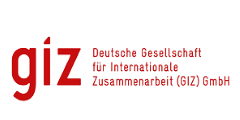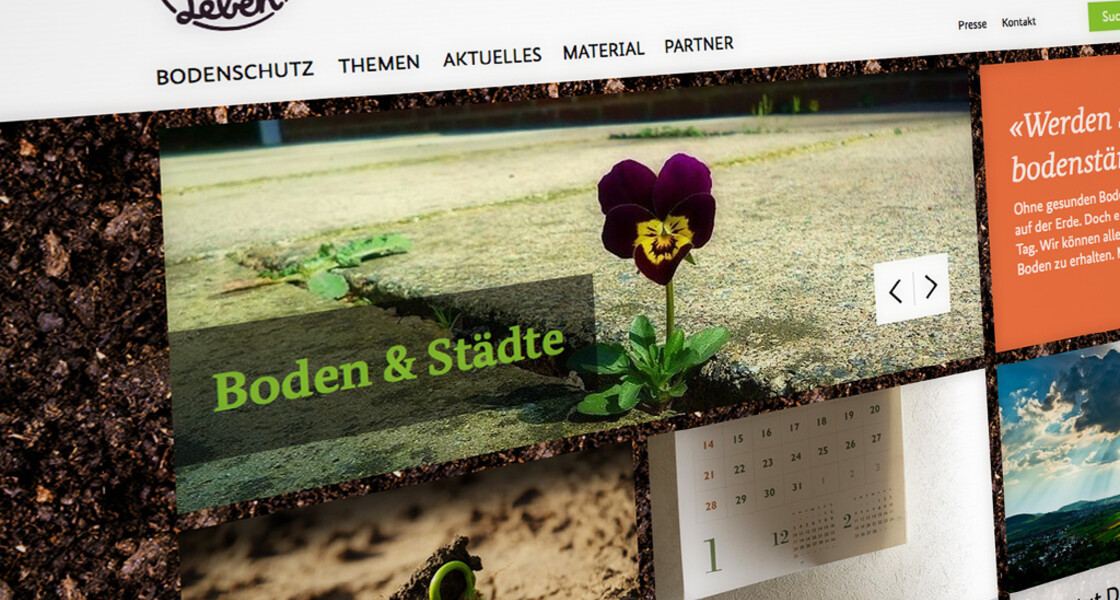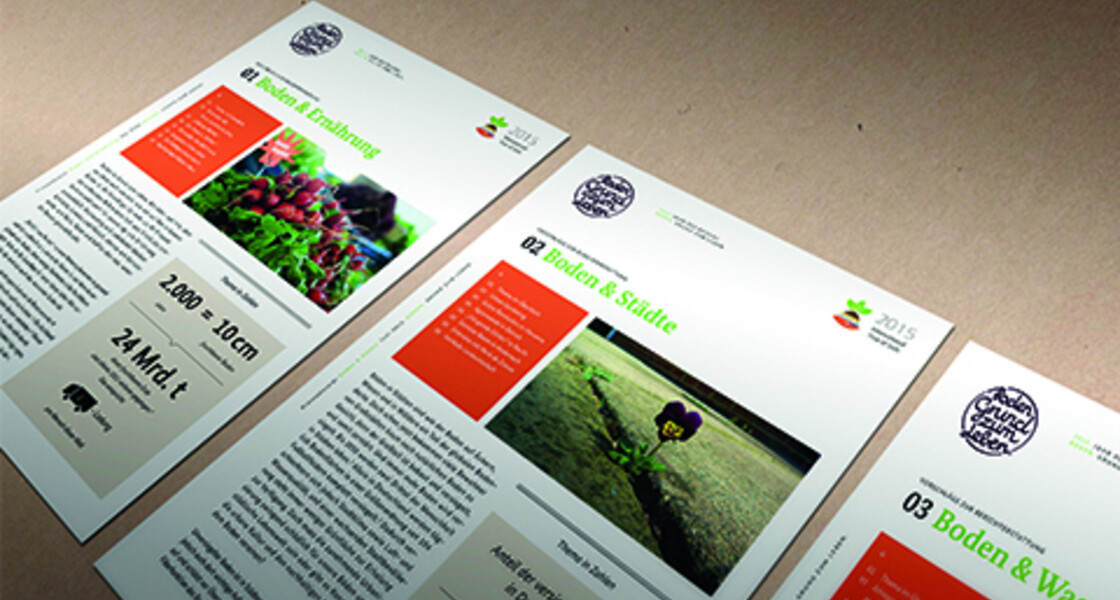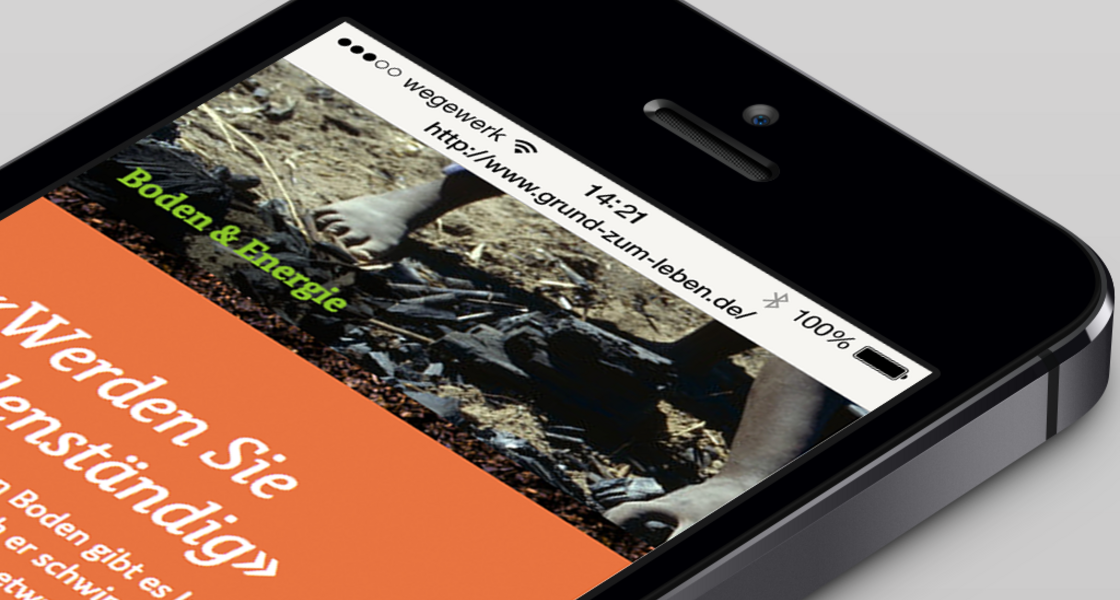German Corporation for International Cooperation (GIZ) GmbH Agenda-setting campaign "Grounds for Living"

On behalf of GIZ, we designed and implemented an agenda-setting campaign around the topic of soil, which we accompanied editorially online and offline.

Die Website der Kampagne dient als Plattform zur Präsentation der erstellten Inhalte.

Thematisch unterschiedliche Pressehefte für Multiplikatoren

Responsive Kampagnenwebseite
In the UN Year of Soil 2015, wegewerk was commissioned by the Gesellschaft für Internationale Zusammenarbeit (GIZ) on behalf of the German Federal Ministry for Economic Cooperation and Development (BMZ) to raise public awareness of the sensitive issue of sustainability in dealing with the limited resource of soil. The starting point was the finding that climate and water are generally recognised as environmental challenges of our time, but that fertile soil, which is increasingly being lost through intensive cultivation and desertification, is hardly ever publicly problematised.
To this end, wegewerk developed a comprehensive communication strategy that took into account a limited media budget. The core of the planned implementation was to convey positive associations with the topic. The aim was to avoid giving the public the finger of blame and to present a gloomy picture of future developments. Instead, the individual value of healthy soil was illustrated.
The approach of communicating the messages was aimed at the press and multipliers. The core of our measures was the professional development of editorial contributions, which were launched to press representatives within the framework of thematic booklets. In this way, the topic was highlighted in nine different contexts in order to serve a wide variety of media focal points. For example, we presented innovative concepts in the topic areas of "Soil and Nutrition" or "Soil and Identity" in the context of positive reports. In addition to facts and figures on a topic area, each issue also contained four journalistically produced reports, high-quality press photos and interviews or debates with experts.
Another pillar of our communication strategy was a network approach that gathered as many "soil-related" actors as possible under the claim "Boden. Reason to live." A strong alliance of about 30 social actors additionally increased the news value of the messages.
On the responsive campaign website that was set up, the information was brought together and attractively presented for the end users. To generate additional reach, we enlisted prominent testimonials as "ground voices" who championed the issue in the form of exciting interviews.
In order to reach potential decision-makers, we prepared all the content again in a low-threshold way within the framework of an "argumentarium". Here, we explained why fertile soils are highly endangered worldwide, what social forces can do to protect them and which key figures shape the debate.
In the interplay of all measures, qualitative content was created that can also be used beyond the campaign period, as well as lasting networks that establish a sustainable action platform for the protection of soils worldwide. Translated with www.DeepL.com/Translator (free version)